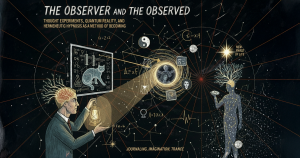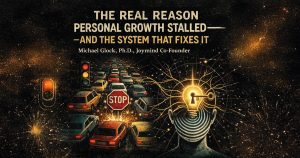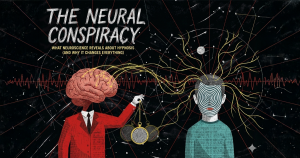Erectile Dysfunction (ED) is a common issue that can significantly impact a man’s quality of life, self-esteem, and relationships.
Traditional treatments for ED often involve medication, lifestyle changes, or mechanical devices. However, psychological factors play a significant role in many cases of ED, making hypnosis an effective complementary treatment. This article explores how and why hypnosis can help in overcoming erectile dysfunction.
Psychological Underpinnings of Erectile Dysfunction
Before diving into how hypnosis works for ED, it is essential to understand the psychological factors contributing to this condition. These factors can include:
- Performance Anxiety: Fear of not being able to perform sexually can create a self-fulfilling prophecy where anxiety inhibits sexual function.
- Stress and Anxiety: General stress and anxiety can affect sexual performance by interfering with the necessary psychological state for arousal.
- Negative Past Experiences: Traumatic sexual experiences or previous episodes of ED can lead to a cycle of fear and failure.
- Depression: Mental health conditions like depression can decrease libido and interfere with erectile function.
- Relationship Issues: Problems in a relationship can manifest as sexual dysfunction.
How Hypnosis Works for Erectile Dysfunction
Hypnosis addresses these psychological factors by helping individuals relax, reduce anxiety, and change negative thought patterns.
- Relaxation and Stress Reduction: Hypnosis induces a deeply relaxed state, which can counteract the stress and anxiety that contribute to ED. By lowering overall stress levels, hypnosis can create a more favorable mental environment for sexual arousal and performance (Elman, 1964).
- Building Positive Expectation: Through suggestion, hypnosis can help reshape negative expectations about sexual performance. Positive reinforcement during hypnosis sessions can build confidence and reduce performance anxiety (Erickson, 1979).
- Addressing Underlying Psychological Issues: Hypnosis can be used to uncover and address deep-seated psychological issues that may be contributing to ED. This might include past traumas, negative self-perception, or unresolved conflicts. By bringing these issues to the surface and reframing them, hypnosis can help resolve the psychological barriers to sexual function (Freud, 1915; Jung, 1968).
- Improving Mind-Body Connection: Hypnosis can enhance the connection between the mind and body, making it easier for individuals to achieve and maintain an erection. This is particularly relevant given the role of psychological factors in the physiological process of arousal (Rossi, 2002).
Mechanisms of Hypnosis in Treating ED
Several mechanisms explain why hypnosis can be effective in treating erectile dysfunction:
- Altered State of Consciousness: Hypnosis induces an altered state of consciousness where the individual is more open to suggestion. In this state, the mind can be guided to focus on positive outcomes and let go of anxiety and fear related to sexual performance.
- Neuroplasticity: Hypnosis can promote neuroplasticity, the brain’s ability to reorganize itself by forming new neural connections. This can help in creating new, positive associations with sexual activity, replacing the negative patterns that contribute to ED (Doidge, 2007).
- Behavioral Conditioning: By repeatedly entering a state of relaxation and associating it with sexual performance, hypnosis can condition the mind to respond differently to sexual stimuli. This Pavlovian response can help in reducing anxiety and improving erectile function over time (Kirsch et al., 1995).
Empirical Evidence Supporting Hypnosis for ED
Numerous studies have demonstrated the efficacy of hypnosis in treating ED:
- A meta-analysis by Kirsch et al. (1995) found that hypnosis is an effective treatment for various psychological and physiological conditions, including sexual dysfunction.
- Research by Elman (1964) and Erickson (1979) highlights the effectiveness of hypnosis in reducing anxiety and improving self-confidence, which are critical factors in overcoming ED.
- Doidge (2007) emphasizes the role of neuroplasticity in therapeutic outcomes, supporting the use of hypnosis to rewire negative thought patterns associated with sexual performance.
Future Promise of Hypnosis
The future of hypnosis in treating ED looks promising, especially with advancements in neuroscience and an increased understanding of the mind-body connection. Emerging research on mirror neurons and their role in empathy and social understanding suggests that hypnosis could enhance relational dynamics, which is crucial for addressing sexual dysfunction within the context of a relationship (Gallese, 2003).
As more studies continue to validate the efficacy of hypnosis, it is likely to become an integral part of holistic treatment approaches for ED. By integrating hypnosis with other therapeutic modalities, such as cognitive-behavioral therapy and mindfulness, healthcare providers can offer comprehensive care that addresses both the psychological and physiological aspects of erectile dysfunction.
Hypnosis offers a powerful tool for addressing the psychological factors that contribute to erectile dysfunction. By promoting relaxation, reducing anxiety, and fostering positive behavioral changes, hypnosis can help individuals overcome ED and improve their sexual health. The integration of hypnosis with modern therapeutic approaches and neuroscience holds great promise for the future, providing hope for those struggling with this condition.
References
Doidge, N. (2007). The Brain That Changes Itself: Stories of Personal Triumph from the Frontiers of Brain Science. New York: Viking.
Elman, D. (1964). Hypnotherapy. Glendale, CA: Westwood Publishing Co.
Erickson, M. H., & Rossi, E. L. (1979). Hypnotherapy: An Exploratory Casebook. New York: Irvington Publishers.
Freud, S. (1915). The unconscious. In J. Strachey (Ed. & Trans.), The Standard Edition of the Complete Psychological Works of Sigmund Freud (Vol. 14, pp. 159-215). London: Hogarth Press.
Gallese, V. (2003). The roots of empathy: The shared manifold hypothesis and the neural basis of intersubjectivity. Psychopathology, 36 (4), 171-180. https://doi.org/10.1159/000072786
Jung, C. G. (1968). Man and His Symbols. New York: Dell.
Kirsch, I., Montgomery, G., & Sapirstein, G. (1995). Hypnosis as an adjunct to cognitive-behavioral psychotherapy: A meta-analysis. Journal of Consulting and Clinical Psychology, 63 (2), 214-220. https://doi.org/10.1037/0022-006X.63.2.214
Rossi, E. L. (2002). The Psychobiology of Gene Expression: Neuroscience and Neurogenesis in Hypnosis and the Healing Arts. New York: W.W. Norton.














